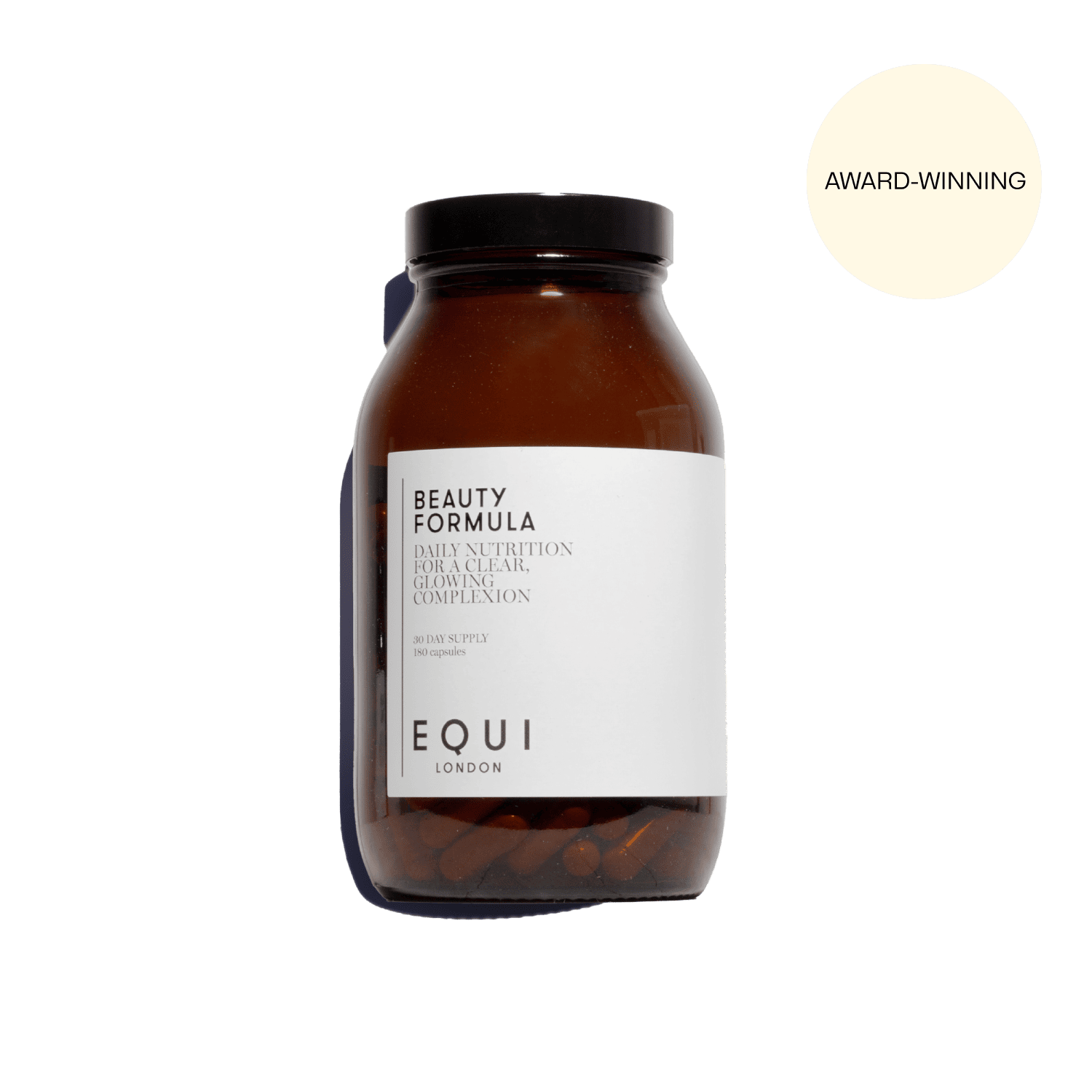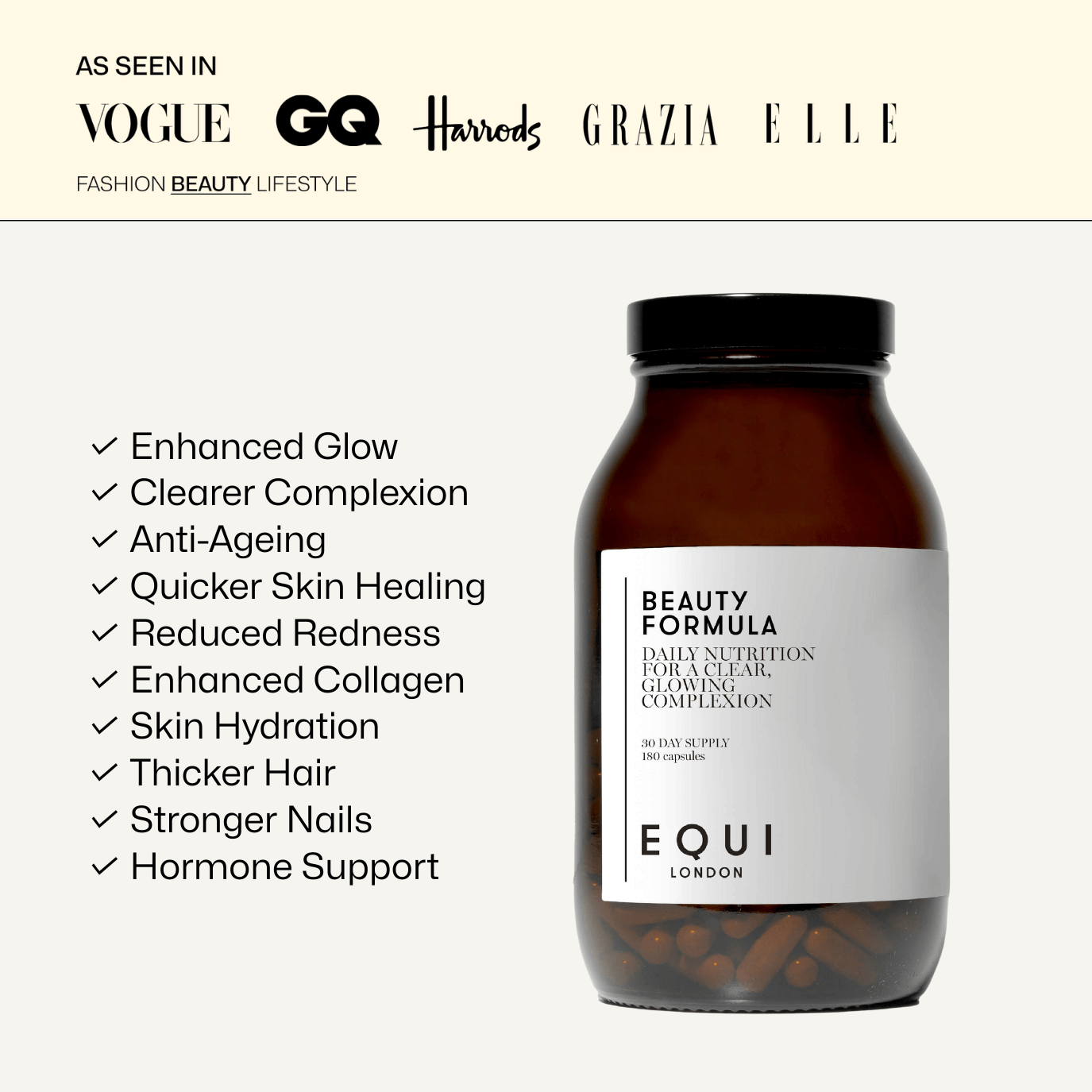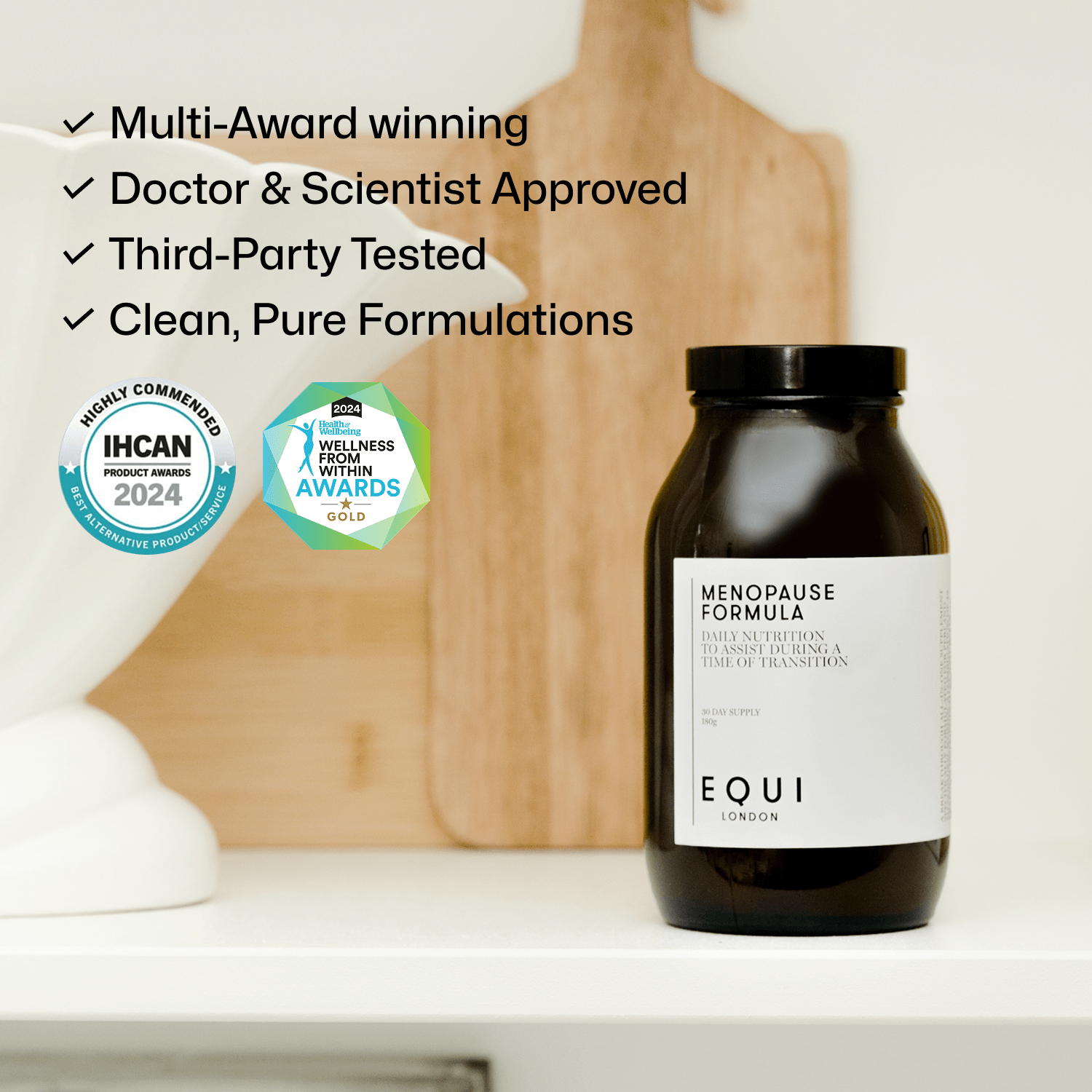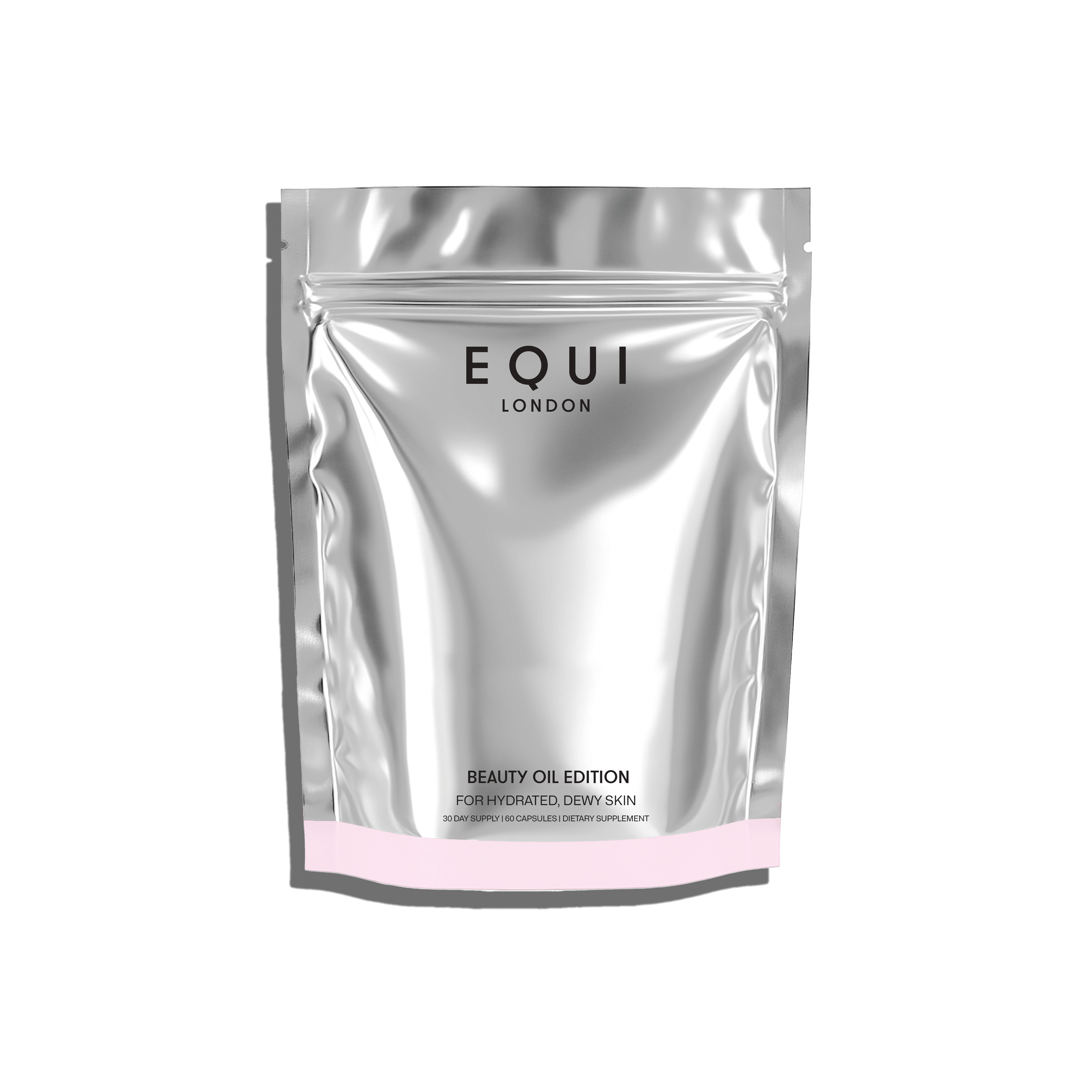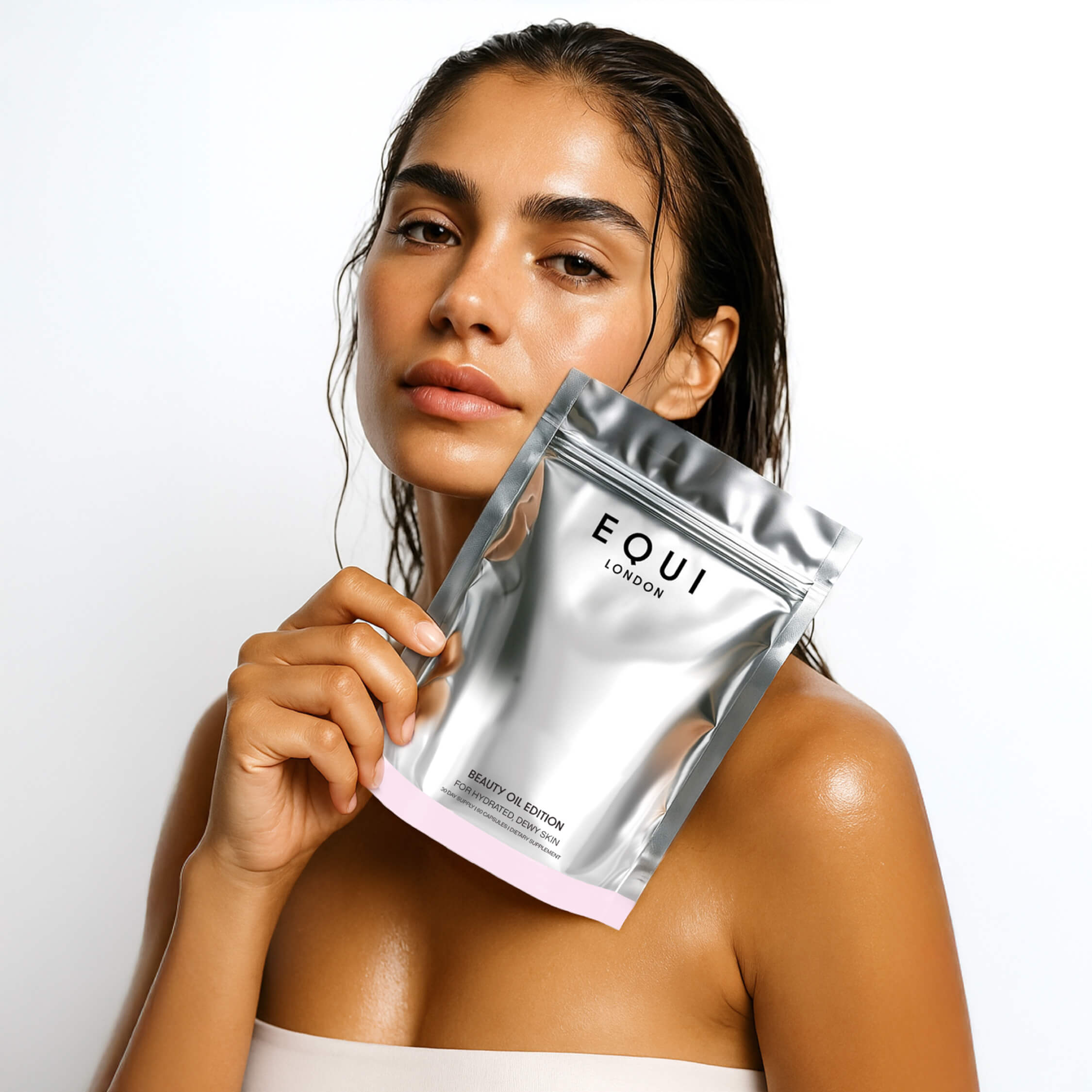Are you navigating unexpected skin changes in your 30s, 40s, or beyond? The onset of breakouts during these transformative years can feel bewildering, a challenge compounded by the myriad of other changes our bodies and minds are navigating. Today’s blog will demystify mid-life breakouts, offering insights, strategies, and a holistic approach to embracing and enhancing your skin health during this pivotal time. For those of us that may have experienced clear skin during our 20’s, only to be met with breakouts that emerge in adulthood it can be an unwelcome surprise. This shift, often linked to hormonal shifts, as well as the stresses and strains of modern life, prompts a quest for answers and solutions. It raises poignant questions: Why now? And, more importantly, what can be done?
Whilst hormonal changes serve as the linchpin in this narrative, with fluctuations in oestrogen, progesterone, and androgens painting a complex picture of our skin’s new reality, other factors can be involved. Hormonal shifts, characteristic of perimenopause, and/or increased stress levels, can significantly impact the skin, leading to increased oil production, inflammation, and mid-life breakouts that many of us experience. Understanding the science behind these changes is the first step towards reclaiming our skin's health and vibrancy.
All EQUI Formulas offer targeted nutritional support for mid-life breakouts. Equipped with key nutrients such as zinc, vitamin C, magnesium as well as live probiotics, our Formulas address the root causes of breakouts from the inside out. For example, zinc regulates oil production, vitamin C promotes repair and regeneration, magnesium supports stress reduction, whilst live probiotics support the gut microbiome, crafting a comprehensive approach to skin and hormonal health. But the journey doesn't stop at nutrition. Lifestyle interventions, including stress management techniques, a balanced diet, regular exercise, adequate sleep, and our skincare regime all play an equally important role. Together with the strategic support of EQUI Formulas, these lifestyle adjustments create a harmonious environment for our bodies and skin to thrive, even in the face of hormonal upheaval.
Today’s blog is not just about addressing skin concerns; it’s about empowering you with the knowledge and tools to navigate this chapter with confidence. It’s about transforming our relationship with our skin, understanding its signals, and responding with compassion and care. Through a blend of science-backed insights, nutritional guidance, and holistic lifestyle tips, we invite you to join us on a journey to radiant, healthy skin that reflects the vitality and wisdom of mid-life.
Common Causes of Mid-Life Breakouts
For many of us, the journey through our teens and twenties with clear skin can abruptly shift as we enter our 30s and approach hormonal shifts leading to perimenopause. This unexpected change, transitioning from seemingly perennially smooth skin to facing breakouts, can be bewildering. Understanding the underlying causes of these mid-life breakouts is crucial for addressing them effectively. The primary driver behind the sudden onset of breakouts in mid-life is hormonal fluctuations. For example, many women may find that when they come off hormonal contraception, they notice breakouts as a result of hormonal shifts. Remember that contraception will mask any hormonal symptoms. Furthermore, during perimenopause, which can start in our late 30s or early 40s, we experience significant changes in our hormone levels. Oestrogen and progesterone levels begin to decline, while androgens (male hormones present in women in smaller amounts) can have a more pronounced effect. This hormonal imbalance can lead to increased sebum production, changes in skin texture, and, consequently, breakouts (1). Furthermore, as we age, changes in skin physiology also play a role in the development of breakouts. The skin's ability to retain moisture decreases, and the turnover rate of skin cells may slow down, leading to clogged pores. What’s more, the skin's natural barrier function can become compromised, making it more susceptible to irritation and inflammation.
However, if you aren’t quite there yet in terms of perimenopause, you may want to consider stress which is another critical factor contributing to mid-life breakouts. The body's response to stress involves the release of cortisol, a hormone that can increase oil production in the skin. High stress levels, common in the demands of modern adult life, can therefore exacerbate or trigger skin issues. Studies support the idea that stress and the subsequent release of cortisol can influence sebaceous gland activity, highlighting the connection between stress and skin health (2). Lifestyle factors can further influence the occurrence of mid-life breakouts. Dietary choices, sleep patterns, and physical activity all impact skin health. Diets high in sugar and refined carbohydrates, for example, can spike insulin levels and increase sebum production. Simultaneously, inadequate sleep and lack of exercise can impair the body's natural detoxification processes, contributing to skin congestion.
So, the emergence of breakouts in mid-life is a multifaceted issue, influenced by hormonal fluctuations, increased stress levels, changes in skin physiology, and lifestyle factors. Understanding these underlying causes offers a pathway to addressing and managing skin health during this transitional period effectively.
The Gut-skin Connection
The intricate connection between our gut health and the condition of our skin is often termed the "gut-skin axis". This relationship underscores the idea that the skin, our body's largest organ, reflects our internal health, particularly the state of our digestive system. The integrity of the gut lining and the balance of the gut microbiome play pivotal roles in maintaining not just optimal gut health but also radiant, healthy, breakout free skin.
Firstly, the gut lining serves as a critical barrier that regulates what enters the bloodstream from the digestive tract. A healthy gut lining ensures that nutrients are absorbed while preventing harmful substances from leaking into the body. However, when the gut lining is compromised, a condition known as "leaky gut" may occur, allowing toxins, undigested food particles, and microbes to pass into the bloodstream, triggering inflammation and immune responses throughout the body. This systemic inflammation can manifest in the skin, leading to conditions such as acne and even eczema or psoriasis (3). Meanwhile, the gut microbiome, comprising trillions of microbes that reside in the digestive tract, plays a critical role in our overall health, including skin health. A balanced gut microbiome supports the immune system, aids in digestion and nutrient absorption, and helps protect against pathogens. On the other hand, dysbiosis, which is an imbalance in the gut microbiome, can lead to increased intestinal permeability, systemic inflammation, and impaired immune function. These internal disturbances can directly affect the skin, potentially leading to mid-life breakouts, as the body attempts to expel toxins and manage inflammation. Research has explored the role of the gut microbiota in influencing systemic inflammation and its subsequent effects on the skin, illustrating the importance of microbial balance for maintaining skin health (4). The manifestations of gut dysbiosis on the skin are diverse. Conditions like acne, particularly prevalent during periods of hormonal fluctuation such as mid-life, can be exacerbated by an imbalanced gut microbiome. The inflammatory processes associated with dysbiosis can aggravate skin inflammation, leading to more severe and persistent breakouts. What’s more, the direct impact of certain gut bacteria on the production of skin-relevant hormones and peptides further ties gut health to skin condition (5). So, the health of our gut significantly impacts the health and appearance of our skin. Maintaining the integrity of the gut lining and ensuring a balanced gut microbiome are essential for supporting optimal skin health. Addressing gut health through diet, probiotics, and lifestyle modifications can help mitigate skin conditions like mid-life breakouts, highlighting the gut-skin connection's importance in holistic health practices.
Beauty Formula was created with the gut/skin axis in mind, containing 1.5 billion live probiotics, including Bifidobacterium bifidum and Bifidobacterium longum, which support and maintain gut health. At Beauty Formula’s core is EQUI’s proprietary GlowCutis® blend, a collagen-stimulating, antioxidant powerhouse to nourish skin, hair and nails. Containing hyaluronic acid, type 1 marine collagen peptides, zinc, vitamin C, pine bark extract, resveratrol & silica, which work together to support every stage of the skin cell cycle, strengthening and helping to counteract premature skin ageing. Shop Beauty Formula here.
Key Nutrients for Combatting Mid-Life Breakouts
Navigating mid-life often brings unexpected surprises, not least of which are mid-life breakouts. This can perplex and frustrate those of us who have sailed through our earlier years with scarcely a blemish. Understanding the root causes and the vital role of nutrition in managing these breakouts can lead the way to clearer, healthier skin. Central to addressing mid-life breakouts is the concept of hormonal balance. Hormonal fluctuations are a hallmark of mid-life changes, due to changes in contraception or particularly during perimenopause, significantly impacting skin health. While Beauty Formula is tailored specifically towards enhancing skin, hair, and nails, it is crucial to recognise that all our Formulas are designed with hormone balance in mind, addressing what often lies at the core of mid-life breakouts. Our Formulas contain a comprehensive blend of advanced multivitamins and minerals, targeting the unique needs of female skin. Among these, zinc plays a pivotal role in managing skin health, known for its anti-inflammatory and antibacterial properties that can reduce acne breakouts (6). What’s more, it regulates sebum production, addressing one of the root causes of acne. Vitamin C, an antioxidant, aids in skin repair and regeneration, promoting a radiant complexion (7). This antioxidant also boosts collagen production, vital for maintaining skin's elasticity and resilience. Magnesium, another essential mineral, supports stress management and hormonal balance, both of which are crucial for maintaining clear skin. Probiotics form another cornerstone of our approach to skin health. Each Formula boasts at least 1.5 billion live probiotics, including Bifidobacterium bifidum and Bifidobacterium longum, which support and maintain gut health. A healthy gut microbiome is increasingly recognised for its role in influencing skin health, with imbalances potentially exacerbating skin conditions such as acne.
Aside from addressing hormonal imbalances with key nutrients, each Formula targets stress in its own unique way, enriched with specific adaptogens that research confirms help mitigate this stress response (8). As mentioned, stress is a known trigger for mid-life breakouts, linked to hormonal fluctuations that can aggravate skin conditions. For example, Beauty Formula features reishi, known for its calming properties, whilst Wellness Formula incorporates Siberian ginseng, an energising adaptogen that helps the body adapt to stress. Meanwhile, Menopause Formula includes KSM66® organic ashwagandha and rhodiola rosea extract 5:1, both revered for their ability to improve stress resilience and support hormonal balance.
Inflammation is a critical factor in the development of acne. Omega-3 fatty acids, renowned for their anti-inflammatory benefits, are integral to managing this aspect of skin health. Our Oil Editions, rich in omega-3s, work from within to reduce inflammation and support hormonal health, thereby addressing two critical factors in the management of mid-life breakouts. Purchase Oil Editions here.
Tackling mid-life breakouts requires a holistic approach that addresses the underlying hormonal imbalances and stress factors contributing to skin issues. By incorporating a blend of targeted nutrients, probiotics, adaptogens, and omega-3 fatty acids, our Formulas offer comprehensive support for those navigating the challenges of mid-life skin changes. Through thoughtful nutrition and lifestyle adjustments, achieving clearer, more vibrant skin in mid-life is not only possible but within reach. All you need to do is find your Formula – take our quiz here.
Lifestyle and Nutritional Strategies
Adopting a holistic approach is essential in managing mid-life breakouts effectively. This strategy not only involves incorporating specific nutrients into your diet but also maintaining an overall lifestyle that supports skin health from within. Something we are super passionate about here at EQUI. During mid-life, the skin often becomes a reflection of the body's internal balance, with hormonal fluctuations playing a significant role in the health and appearance of the skin. Key nutrients aside, a balanced diet, rich in antioxidants and omega-3 fatty acids, while low in processed foods and sugars, is crucial. Antioxidants combat oxidative stress, reducing inflammation that can lead to breakouts. Foods such as berries, nuts, and green leafy vegetables are excellent sources. Omega-3 fatty acids, found in fatty fish, flaxseeds, and walnuts, also reduce inflammation and have been shown to improve skin conditions like acne (9). Minimising intake of processed foods and sugars can further support skin health by reducing insulin spikes and subsequent hormonal imbalances that contribute to acne. Studies have linked high-glycaemic (high sugar) diets with increased acne severity, underscoring the importance of dietary choices in managing skin health.
Other considerations include regular exercise which enhances blood circulation, promoting the delivery of oxygen and nutrients to the skin while facilitating the removal of toxins. Exercise also helps in stress reduction, another critical factor in managing mid-life breakouts. Stress management techniques such as yoga and meditation can lower cortisol levels, thereby minimising its impact on skin health. Adequate sleep is another pillar of a holistic approach to skin health, as it allows the body to repair and regenerate skin cells, reducing the likelihood of breakouts. Combining these dietary and lifestyle factors with targeted nutritional support from EQUI Formulas, which contain key nutrients essential for skin health, offers a comprehensive strategy for managing mid-life breakouts. EQUI Formulas’ inclusion of advanced vitamins, minerals, and live probiotics in optimal forms and doses supports hormone balance and gut health, both of which are crucial for clear skin.
On the external front, maintaining a proper skincare routine is vital. Something often overlooked is the importance of regularly changing pillowcases and preferably using silk ones, which can prevent the accumulation of oil and bacteria, reducing the risk of acne. Silk pillowcases are gentler on the skin, reducing friction and irritation.
Using non-comedogenic skincare products ensures that pores aren't clogged by heavy creams or oils. While cleansing is important, over-cleansing can strip the skin of its natural oils, leading to increased oil production. Instead, adopting a double-cleansing routine in the evening can effectively remove makeup and impurities without causing irritation. Following up with a toner can help restore the skin's optimal pH level, maintaining its health and resilience.
As we‘ve explained, managing mid-life breakouts requires a multifaceted approach that addresses both internal and external factors influencing skin health. A balanced diet, regular exercise, stress management, adequate sleep, and appropriate skincare practices, combined with targeted nutritional support, can mitigate the effects of hormonal fluctuations on the skin. This holistic approach can lead to a clearer, more vibrant complexion, reflecting the body’s internal balance and well-being through mid-life and beyond!
References
- Khunger N, Mehrotra K. (2019). Menopausal Acne - Challenges And Solutions. Int J Womens Health. 11, pp. 555-567.
- Borzyszkowska D, Niedzielska M, Kozłowski M, Brodowska A, Przepiera A, Malczyk-Matysiak K, Cymbaluk-Płoska A, Sowińska-Przepiera E. (2022). Evaluation of Hormonal Factors in Acne Vulgaris and the Course of Acne Vulgaris Treatment with Contraceptive-Based Therapies in Young Adult Women. Cells. 16;11(24), p. 4078.
- Vaughn, A.R., Notay, M., Clark, A.K., & Sivamani, R.K. (2017). 'Skin-gut axis: The relationship between intestinal bacteria and skin health.' World Journal of Dermatology, 6(4), 52-58.
- Salem, I., Ramser, A., Isham, N., & Ghannoum, M.A. (2018). 'The Gut Microbiome as a Major Regulator of the Gut-Skin Axis.' Frontiers in Microbiology, 9, p. 1459.
- Bowe, W.P., & Logan, A.C. (2011). 'Acne vulgaris, probiotics and the gut-brain-skin axis - back to the future?' Gut Pathogens, 3, 1.
- Yee BE, Richards P, Sui JY, Marsch AF. (2020). Serum zinc levels and efficacy of zinc treatment in acne vulgaris: A systematic review and meta-analysis. Dermatol Ther. 33(6), e14252.
- Telang PS. (2013). Vitamin C in dermatology. Indian Dermatol Online J. 4(2), pp. 143-6. doi: 10.4103/2229-5178.110593.
- Liao LY, He YF, Li L, Meng H, Dong YM, Yi F, Xiao PG. (2018). A preliminary review of studies on adaptogens: comparison of their bioactivity in TCM with that of ginseng-like herbs used worldwide. Chin Med. 16, 13, p. 57.
- Jung JY, Kwon HH, Hong JS, Yoon JY, Park MS, Jang MY, Suh DH. (2014). Effect of dietary supplementation with omega-3 fatty acid and gamma-linolenic acid on acne vulgaris: a randomised, double-blind, controlled trial. Acta Derm Venereol. 94(5), pp. 521-5.
Disclaimer: All of the information on this website is provided for general information only, it should not be treated as a substitute for the medical advice of your own doctor or any other health care professional providing personalised nutrition or lifestyle advice. If you have any concerns about your general health, you should contact your local health care provider. No one diet or supplement regime works for everyone and you should always seek help from a GP and registered health expert before making changes to your diet, or before introducing any supplements. This is especially important when pregnant.
